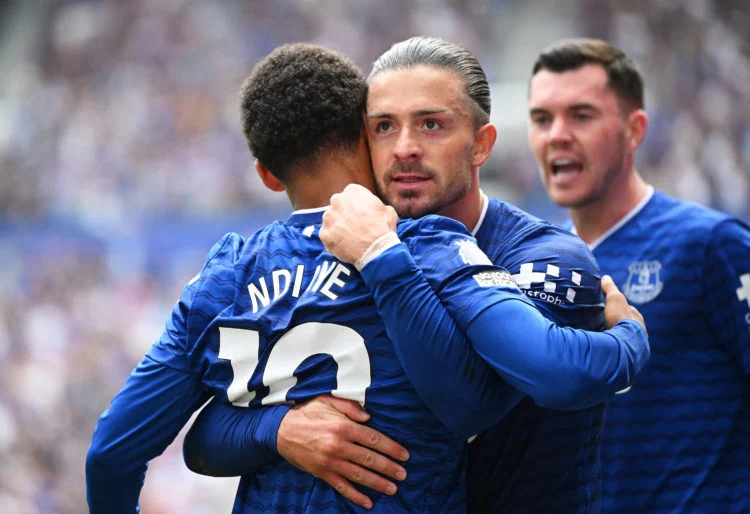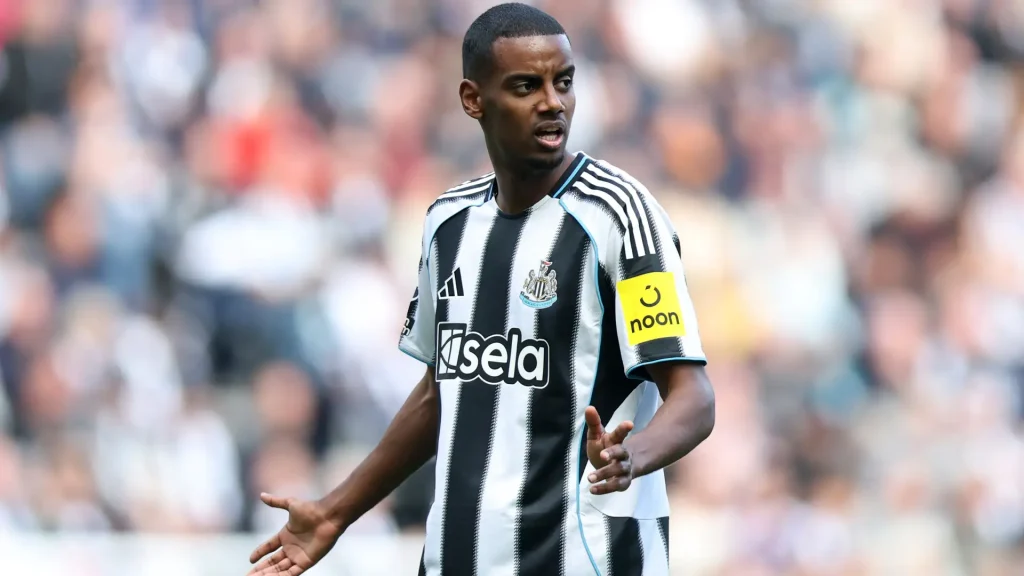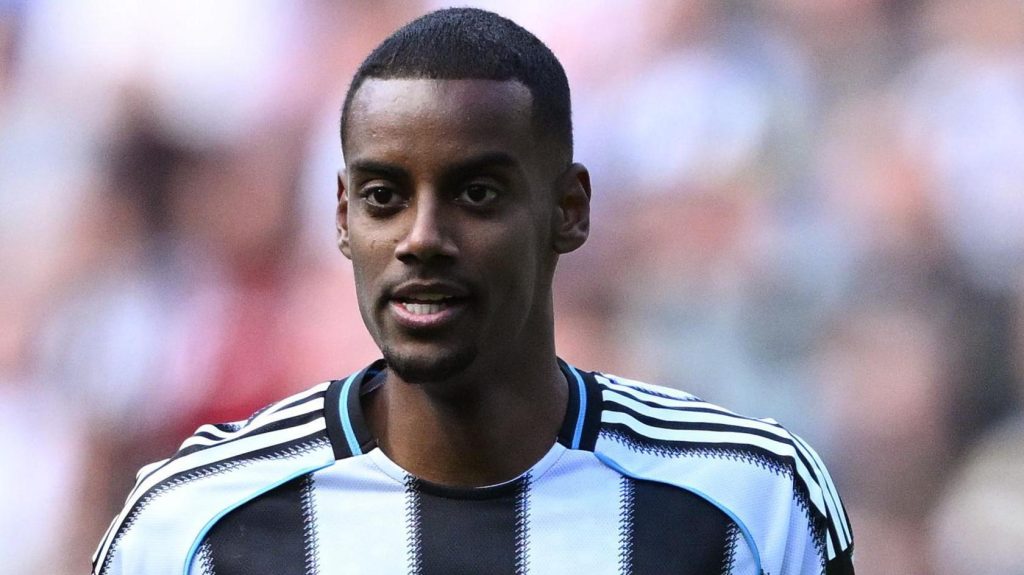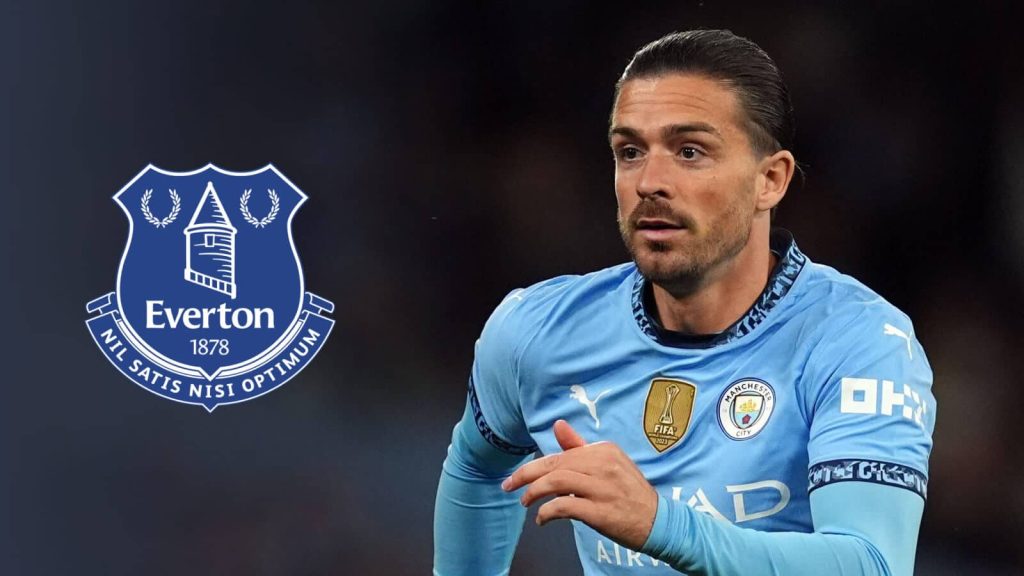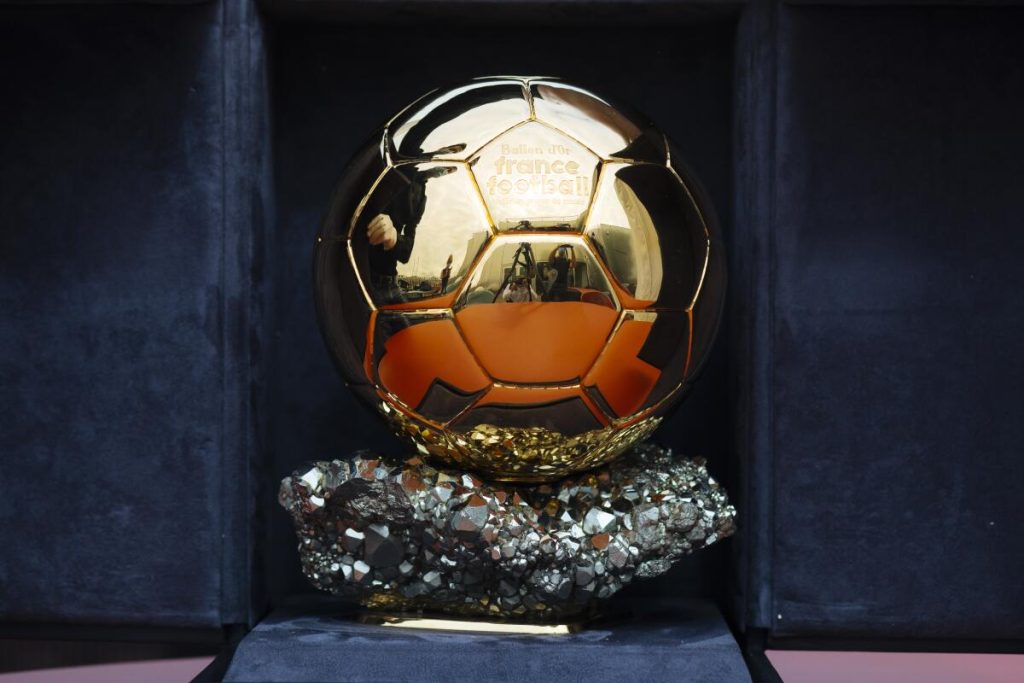
The Champions League final wrapped up on June 1, and then the Euros kicked off less than two weeks later. Shortly after, the Copa América began. It’s been nearly nonstop soccer since last August.
There’s still more to come with the Olympics, starting next Friday. However, there’s a brief respite at the top of the men’s game. (Women’s soccer at the Olympics is a senior event, but it’s mostly under-23 players in the men’s competition.) Most of Europe’s Big Five leagues won’t start their next seasons for another month.
So, what should we do now? Speculate about transfers, of course. But also, we can look back. The soccer world still hasn’t developed a satisfying award system to mark the passage of time and create a historical record for the best players in a given season. All we have is one trophy, the Ballon d’Or, which won’t be handed out until late October.
Changes made a few years ago now limit the performance period for the award to the previous season rather than the entire calendar year. Argentina’s win against Colombia on Monday, July 15, in Miami concluded all the 2024 Ballon d’Or debates. So, with all the games in the books: Who will win soccer’s most prestigious individual award? And who should win it?
Could Messi win the 2024 Ballon d’Or?
Predicting the Ballon d’Or winner is tricky because Lionel Messi and Cristiano Ronaldo have dominated it for years. Since 2008, Ronaldo has won the award five times, and Messi eight times. Across soccer’s modern era, one of these two players has won the Ballon d’Or in 13 of the past 15 years.
I’ve analyzed the numbers, ran regressions, and used AI-powered insights, concluding that the biggest influencing factor over winning the Ballon d’Or is being named Cristiano Ronaldo or Lionel Messi.
This year, it’s unlikely either will win. Ronaldo, who scored zero goals at the Euros despite starting every match for Portugal, has no chance. Messi has a tiny chance. The award is now voted on by 100 journalists from the top 100 countries in the FIFA rankings, who are given a shortlist of 30 players by France Football and rank their top five. Points are assigned, and the player with the most points wins.
Messi is the most popular soccer player in contention, and his team just won its second straight Copa América. Argentina became only the second European or South American country to win two consecutive continental titles with a World Cup in between.
From a results perspective, the two greatest national teams of all time are Spain from 2008 through 2012 and this iteration of Argentina. Messi is as famous as the pope, the reigning Ballon d’Or winner, and the captain of the national team that just capped off arguably the greatest four-year run ever seen.
Would it really surprise you if that sways enough voters to give the award to Messi? I don’t think it’ll happen – he’s been in MLS for a full year now and was injured for most of the Copa América – but with no clear front-runner, I could see a world where a bunch of favorites split the vote and Messi ekes out enough points to win his record-extending ninth award.
Who will win the 2024 Ballon d’Or?
While Messi and Ronaldo have dominated the top of the ballot, there’s still valuable information to glean from the standings below them. Looking at years with international tournaments since 2008, a clear trend emerges: players on winning national teams get a massive boost.
In 2008, Ronaldo and Messi were top two, followed by Spanish team members Fernando Torres, Iker Casillas, and Xavi. Sixth was Andrey Arshavin, who had a breakout performance at the Euros for Russia.
In 2010, Messi won the award, but World Cup winners Andres Iniesta and Xavi were next, followed by Wesley Sneijder and Diego Forlan. Four other Spanish players finished in the top 11.
In 2012, Messi won again and Ronaldo finished second, but Xavi, Iniesta, and Casillas were top six after Spain’s Euro victory.
In 2014, Ronaldo won and Messi finished second, but World Cup-winning goalkeeper Manuel Neuer was third, with Thomas Müller, Phillip Lahm, and Toni Kroos in the top 10. James Rodríguez was eighth due to his World Cup performance.
In 2016, Ronaldo’s Portugal won the Euros, and he won the Ballon d’Or. Portugal’s goalkeeper, Rui Patrício, landed 12th, outvoting Zlatan Ibrahimovic, Kevin De Bruyne, Paul Pogba, and others.
In 2018, Modric broke the Messi-Ronaldo duopoly thanks to Croatia’s World Cup run and Real Madrid’s Champions League title. Messi, Ronaldo, and other World Cup winners like Antoine Griezmann and Kylian Mbappé filled the top spots.
In 2021, Messi won controversially over Lewandowski after winning the Copa América. Jorginho finished third after winning the Champions League with Chelsea and the Euros with Italy.
Last year, Messi won again after moving to MLS, mainly due to his performance at the World Cup.
What does it all mean?
This trend suggests that players from Spain (Euro 2024 winner), Argentina (Copa América 2024 winner), Colombia (Copa América 2024 runner-up), and England (Euro 2024 runner-up) will receive more votes than in a season without major international tournaments. A standout performer from Spain or Argentina who also plays for Real Madrid might be the favorite.
No Argentines play for Real Madrid, and the only members of Spain’s Euro-winning side from Madrid are Joselu, Nacho Fernandez, and Dani Carvajal. Joselu rarely played, and although Nacho was in and out of lineups, he’ll probably get a few down-ballot votes.
Surprisingly, there’s an outside shot that Dani Carvajal wins the Ballon d’Or. He scored Real Madrid’s winning goal against Dortmund and played the full 90 in the Euro final. If Jorginho could finish third in a year with two superstar candidates, the 32-year-old Madrid full-back could sneak into the top slot in a season with no obvious choice at the top of the ballot.
Lautaro Martínez was the leading scorer at the Copa América, scored the winning goal in the final, and led Serie A in goals for a dominant Inter Milan side. However, not starting for his national team and Inter’s early Champions League exit will likely affect his Ballon d’Or prospects, but he’ll probably land in the top 10.
Oddsmakers’ favorites are Vinícius Júnior, Jude Bellingham, and Rodri. Vini led Real Madrid to a LaLiga and Champions League double but missed Brazil’s final group-stage match at the Copa América, and they were eliminated by Uruguay.
Bellingham was the favorite midway through last season but cooled off in the second half and was poor at the Euros. Despite this, England’s final appearance and his tying goal in the final keep him in contention.
Lastly, there’s Rodri. Manchester City only won the Premier League this season. However, his Spain side won the Euros with a record number of goals, and he was named Player of the Tournament. The main impediment to Rodri’s Ballon d’Or candidacy is his lack of fame compared to Vini and Bellingham.
Who should win the Ballon d’Or?
Based on the current criteria of individual performance and team performance, Rodri should win. He’s the best player on the best club team in the world and the best player on Europe’s best national team.
Rodri excels in ball-winning, aerial dominance, ball progression, and scoring goals. His individual performances and impact on team performance are unmatched. Since the start of last year, Rodri has won eight total trophies and lost four total matches for club and country. In my opinion, he’s the best player in the world, and with Spain winning the Euros, he checks off the big box that voters look for.

